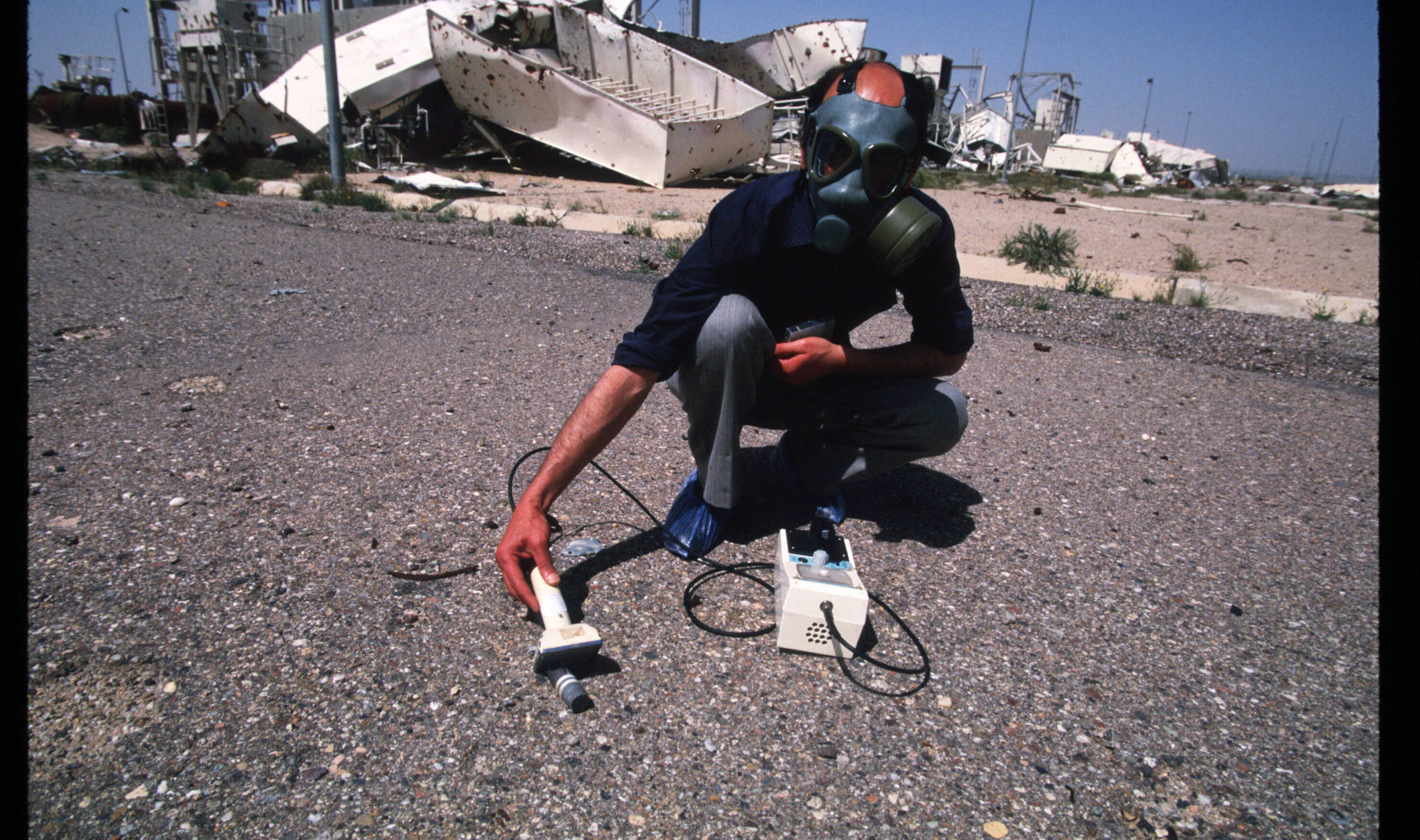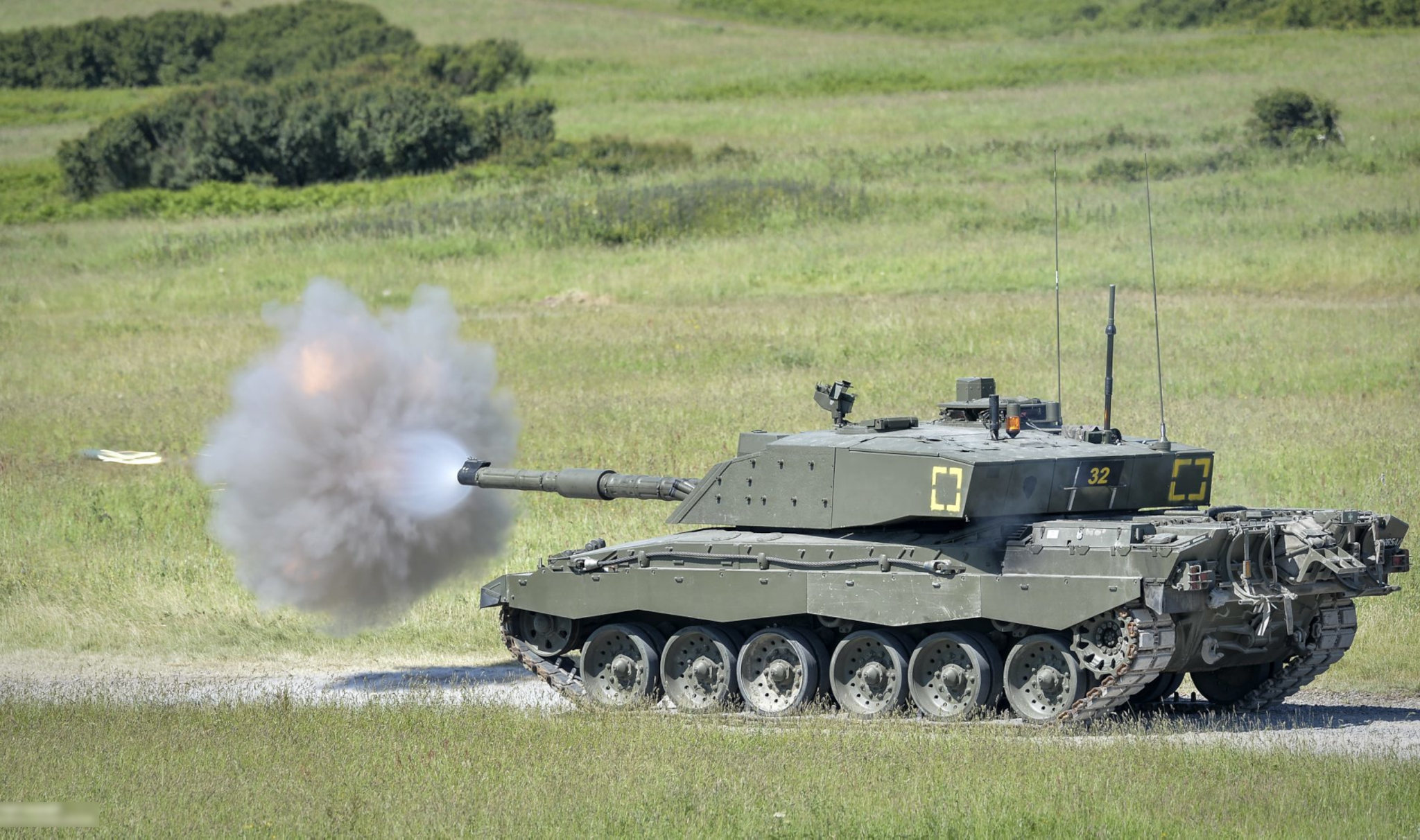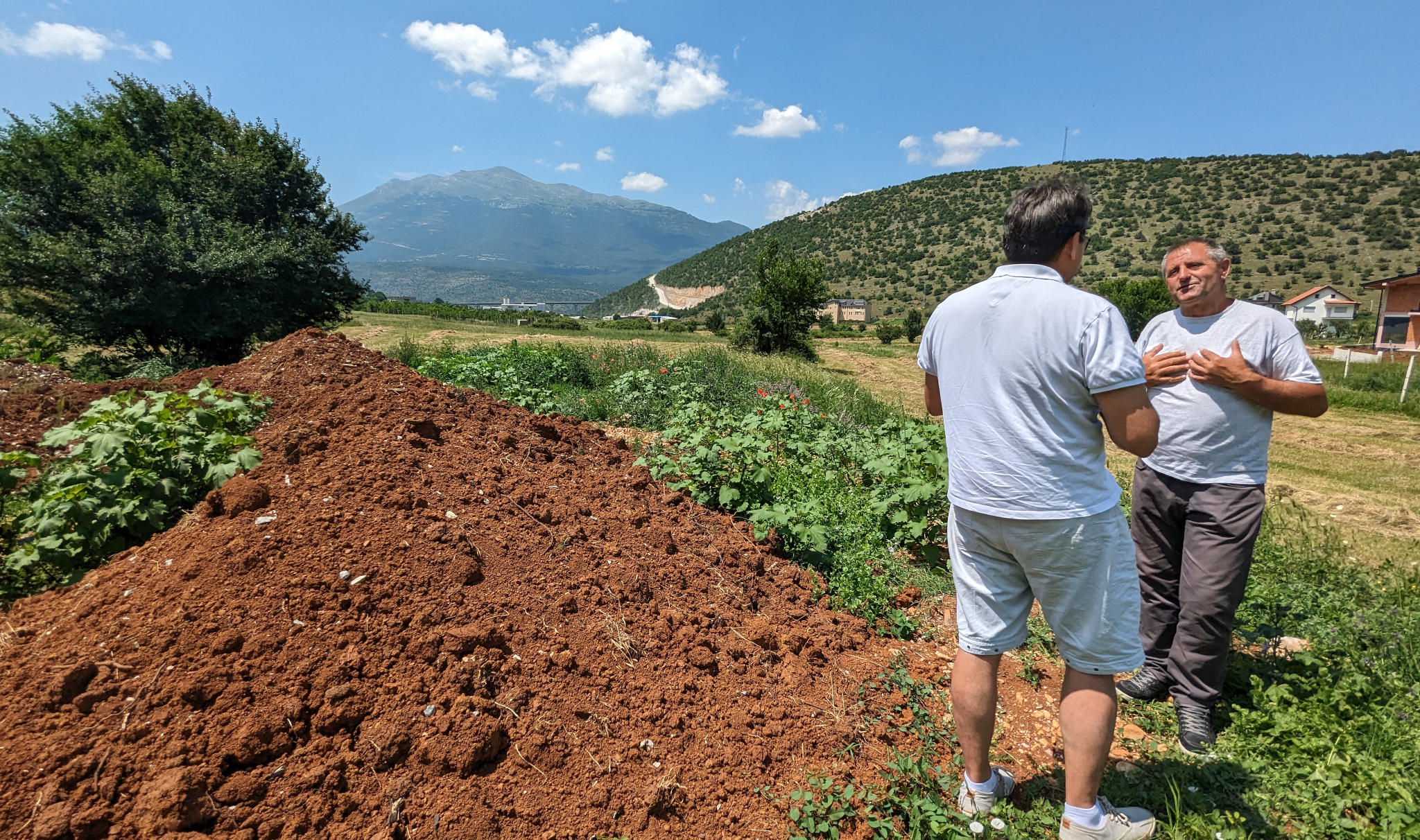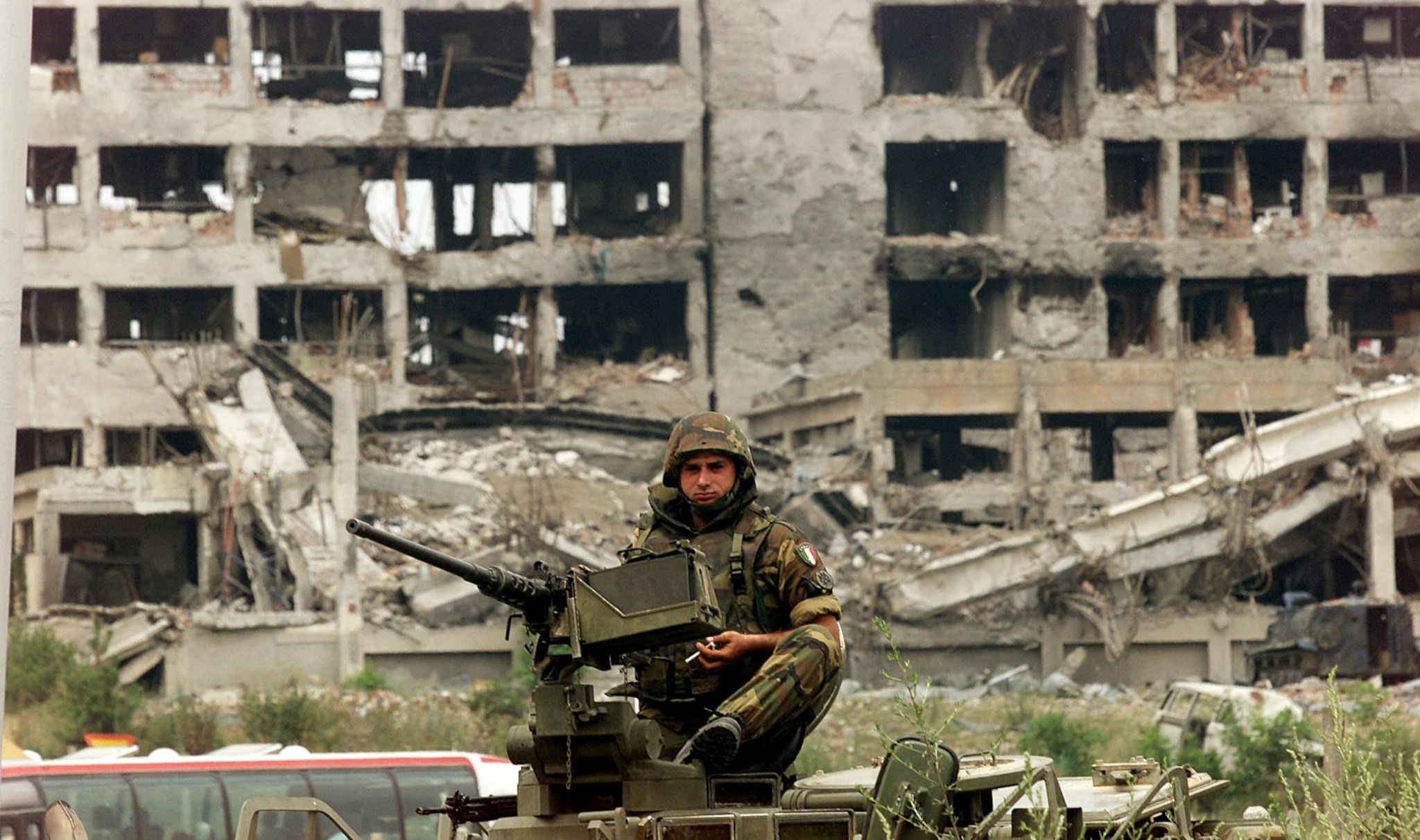EXPLAINER: WHY SHOULD WE BE CONCERNED ABOUT DEPLETED URANIUM?
A man measures radiation levels on a DU ammo sleeve in Iraq. (Photo: Scott Peterson / Getty)
What is the UK sending to Ukraine?
Declassified broke the story in March that the UK is supplying depleted uranium (DU) to Ukraine. The DU is contained in shells used by tanks.
Britain has supplied 14 Challenger 2 tanks capable of using DU shells to Ukraine. Thousands of rounds of Challenger 2 ammunition have been sent but it is not known how many contain DU.
What is depleted uranium?
Depleted uranium is a heavy metal, a by-product created during the process of developing nuclear weapons or nuclear fuel.
To create weapons or fuel for nuclear reactors, uranium, a naturally occurring metal, needs to be enriched. During the enrichment process uranium-235 is separated from uranium-238 and what remains after the process is called depleted uranium.
DU is radioactive because it still contains some of the original radioactive matter, but at a much lower level compared to the original material.
Why is depleted uranium used by the military?
DU is a dense material that can pierce through thick armour when used in ammunition. This means it can do real harm to enemy equipment like tanks.
The material can also be used as a protective measure. Armour made from depleted uranium is much stronger and does not corrode easily which makes it useful in conflict situations.
A small number of militaries around the world including the US and UK use depleted uranium to make ammunition and tank armour.
When was depleted uranium first used?
The US army began using DU in 1977, producing armour-piercing rounds and later tank armour.
DU has been used in several major conflicts since then, including the Gulf War (1991), Bosnia (1992-1995), Kosovo (1999), Iraq (2003-2011) and Syria (2015).
What are the concerns with depleted uranium?
There are concerns about DU’s impact on the health of civilians who live close to war zones and soldiers who are exposed during battle because it is chemically toxic and slightly radioactive.
Depleted uranium has been linked to birth defects and a spike in cancer cases.
Soldiers can be exposed when projectiles strike their targets. They can fragment, releasing fine particles that can contaminate the area and be inhaled or ingested.
Military personnel involved in handling, transporting or working near depleted uranium munitions or damaged armoured vehicles can also be at risk.
There are also potential long term environmental impacts of DU in post-conflict zones – whether heavy metals leaking into water or residents being in close contact with the ammunition.
What has been the impact of DU in other wars?
The International Atomic Energy Agency reports that the use of DU in munitions during conflicts in the Balkans and the Middle East “resulted in the contamination of these territories with radioactive residues”.
The Harvard International Review took a look at military equipment that littered communities in Iraq after the 1991 Gulf War. In one community, Basra, local children played on tanks and collected bullets made from DU.
A researcher published studies showing that in the area, cases of leukaemia in children increased by 60% between 1990 and 1997, finding a link between DU and health defects.
In 2001 the UK government admitted that thousands of British troops who served in Kosovo during the NATO-led conflict in 1999 were at risk from the effects of DU after a health warning failed to reach soldiers.
Declassified reports that Italian courts are finding in favour of veterans who developed cancer after being exposed to depleted uranium while serving in the Balkans in the 1990s.
What needs to happen?
There is sufficient evidence to suggest DU cannot be considered a ‘safe’ weapon to local communities and soldiers. The United Nations has criticised the UK for supplying DU to Ukraine.
Now the UK is supplying DU to Ukraine, campaigners have said it should at least commit to cleaning up the impacts of these weapons.
They warn that further scientific research needs to be done on this issue – and any findings from past research which is being withheld or censored must be made public.





No comments:
Post a Comment